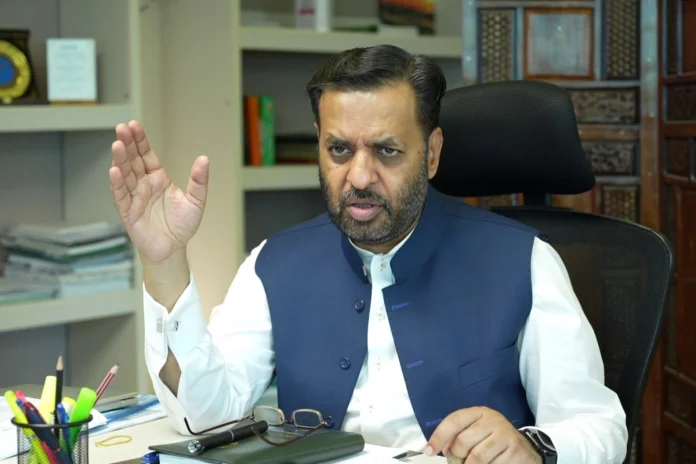- Advertisement -
ISLAMABAD, Nov 18 (APP):Federal Minister for Health, Syed Mustafa Kamal on Tuesday announced that the government will establish dedicated medical desks for traditional and plant-based medicine in every major public hospital across the country.
He made this announcement while inaugurating a two-day regional seminar on “Plant Materials and their Clinical Validation in the Management of Diabetes and Metabolic Disorders: Challenges and Scope” at the OIC-COMSTECH Secretariat.
Expanding on the announcement, the Minister said diabetes remains “one of Pakistan’s most serious health and development challenges,” noting that one in four adults is living with diabetes or pre-diabetes.
He warned that the healthcare system is under immense pressure and stressed that “no matter how many hospitals we build, it is impossible to treat every patient unless we prioritise prevention.”
He said environmental and lifestyle factors are driving the rise in chronic diseases and emphasised the importance of integrating traditional and plant-based medicine into modern healthcare systems- a subject he described as “close to his heart.”
He reaffirmed the government’s full support for COMSTECH, ANRAP
(Asian Network of Research on Antidiabetic Plants) and national research institutions working on safe, affordable and evidence-based therapeutic options.
The seminar, jointly organised with the ANRAP, has brought together senior experts from Bangladesh, Sri Lanka, Pakistan, Australia, the United Kingdom, Egypt and several OIC member states. More than 150 participants joined the inaugural session in person and online.
Addressing participants virtually, Ambassador Aftab Ahmad Khokhar, Assistant Secretary General (Science and Technology), said the seminar aligns with the OIC Science, Technology and Innovation Agenda 2026.
He praised COMSTECH for advancing scientific cooperation, capacity building and South–South collaboration. He also highlighted the need for harmonised regulatory systems and stronger quality control for herbal and plant-based therapeutics.
Speaking on the occasion, Prof. Dr. M. Iqbal Choudhary, Coordinator General OIC-COMSTECH, said the world continues to face a heavy burden of diseases shaped by weak health systems, climate change and demographic pressures. He pointed out a “major scientific gap” in developing countries in understanding diseases at molecular and genetic levels.
Most chronic diseases, including diabetes, dementia and cardiovascular conditions, he noted, are being “managed rather than cured,” underscoring the need for prevention-focused health policies.
He said future healthcare must emphasise epidemiological research, sanitation, clean water, healthy diets, safe environments and strong social support structures.
Prof. Choudhary also highlighted COMSTECH’s initiatives including biomedical training, virology fellowships, capacity-building workshops, the Africa health programme and humanitarian medical outreach and said a return to nature, through lifestyle adjustments and scientifically validated medicinal plants, can significantly support diabetes prevention.
Prof. Dr. Begum Rokeya, Network Leader and Secretary General of ANRAP, outlined the goals of the seminar, stressing the importance of scientifically validating widely used traditional medicinal plants across Asia and OIC member countries.
She emphasised collaborative research, shared laboratory resources and systematic clinical evaluation.
Iqbal Hussain Khan, High Commissioner of Bangladesh to Pakistan, also addressed the inaugural session.
He said relations between Pakistan and Bangladesh have strengthened since 2024 through increased high-level exchanges.
He noted that the restoration of direct flights between the two countries will enhance cooperation in health, education, tourism, trade and scientific research.
He praised the expertise of Pakistani medical professionals and said strengthened scientific collaboration will benefit both nations and the wider Muslim world.
The seminar will continue on Wednesday with technical sessions on medicinal plant research, metabolic disorders, clinical validation, product development and regulatory challenges, featuring experts from Asia, the Middle East and Africa.

